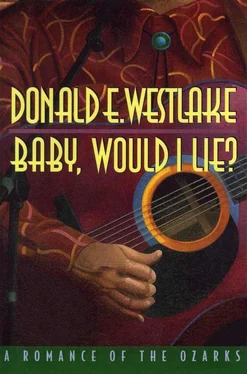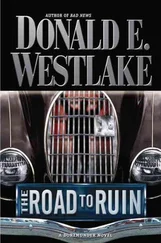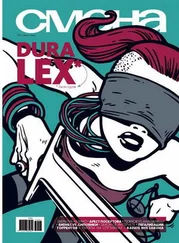“Agreed,” Jack said.
“I shouldn’t have just sent that one page of fax.”
Jack cocked an eyebrow at her. “ That’s what was wrong with the approach?”
“Now listen,” she said. “I’m not turning my back on the Galaxy .”
“Good. No one should ever turn his back on the Galaxy .”
“I’m just saying,” she just said, “there’s something in this singer, too, what he represents.”
“The proles,” Jack told her. “The mouth-breathers. The underclass.” He pointed. “Those people in those used cars out there.”
“Don’t be so condescending,” she said.
“Why not? I’m smarter than they are, faster, funnier, richer and probably better-looking.”
She reared back, the better to study him withal. “Are you being provocative?”
“That, too,” he agreed. “I’m more provocative than they are. Sara, honeybun, our readers don’t care—”
“I hate it when you call me honeybun.”
“That’s the first time I ever did.”
“And I hated it.”
Casually, he said, “Who else called you honeybun?”
She gave him a look. “All those guys that nuzzled my neck,” she said.
“Oh, those guys.”
“You were saying something about our readers.”
“I was. I was saying they don’t care about the shitkickers, is what I was saying. Our readers care about wealth and prestige. They care about power and fame. They care about success and excess. Bottom-feeders are not a matter of deep interest to the readers of Trend . That is why I am going from here to the center of journalistic misuse of money and power, the Galaxy hospitality suite.”
“Two-two-two.”
“And very very.”
“Will you do me a favor?” she asked.
“Anything.”
“After the Galaxy , go to the show. The Ray Jones show.”
“Oh, for Christ’s sake, honeybun—”
“That’s twice.”
Heavily, he shrugged and nodded his acceptance of the inevitable. “All right,” he said, “all right, all right, I’ll go—”
The phone rang.
“—see the Ray Jones show,” he finished, as Sara got up and went over to the bedside phone. “And you concentrate on the Galaxy .”
“Sure. Hello? Oh, hi, Cal.” Sara listened, then smiled all over her face. “That’s great! Cal, I really appreciate this. I’ll be there. Absolutely. Oh, Gil? Listen, my editor’s in town... from the magazine? Could you put him in the Elvis seat tonight? Thanks, Cal. I’ll tell him. His name is Jack Ingersoll. Right. See you tomorrow, nine A.M. Bye.”
Sara hung up and smiled at Jack. “You are looking at a genius,” she announced.
“The Elvis seat?”
“Don’t worry about it. You just present yourself at the Ray Jones Theater a little before eight tonight. Go to the guy at the door and tell him who you are. He’ll explain all about the Elvis seat. The thing is,” she went on, “Ray Jones sells out, every show, over eight hundred seats. And there’re no house comp seats.”
“I’m looking forward to this,” Jack said insincerely. “What was he calling about? Cal, was it?”
“He wanted to tell me how my neck smelled after sex.”
“Sara, you are beginning to annoy.”
“I don’t really care,” she told him, flashing her sunniest smile. “His name is Cal Denny; he’s rather sweet—”
“Unlike some.”
“He’s Ray Jones’s best friend, and they’re all going over to Forsyth tomorrow for jury selection. Ray Jones and his whole band and Cal Denny and everybody, showing solidarity.”
“And?”
“And I,” Sara said, “have been invited along.” She pirouetted in front of him, arms and hands at a graceful angle. “Just call me supergroupie,” she suggested. “I’m going on the team bus.”
Ray wasn’t giving any interviews these days because of the upcoming trial, but back before this latest truckload of wet manure had hit the fan, he used to give interviews all the time. The entertainment press, which lives on a modification of the Will Rogers motto — they never met a star they didn’t like — is access . Access to the public eye, the public ear, and the public brain, if there is such a thing. Access was vital, was the lifeblood of the star’s career, because, as Ray well knew — as every headliner well knew — the public brain, if there is such a thing, has an extremely short attention span. They’ll forget you in a New York minute if you give them the chance. So the stars and the wannabes and the usedtabeens all crowd the entertainment media, the magazines and the TV shows and even (if nothing else is happening) the radio. They all smile and look relaxed and easy, they meet the interviewer’s eye with a confident and friendly gaze, and they blandly ignore the interviewer while they talk right through him or her and directly into the public brain, if there is such a thing.
After a while, every headliner develops a patter, a routine, a whole arsenal of set paragraphs and stock answers to all those expected, unoriginal, unthreatening questions. Press this button, that answer pops out. Here’s what you got when you pressed Ray Jones’s various autobiography buttons:
“Well, I was born a bunch of years ago in a little town in Georgia you’ve never heard of, Lynn — I can pretty well guarantee you that. Oh, try you? [Chuckle] Sure, Lynn. It’s called Troutman, not that far from Hazlehurst, on the road toward Albany. Oh, it’s a little town, Lynn, a bump in the road. I believe a travelin preacher got a flat tire there once and that’s how the place got started. No, I mean it. By the time the poor man raised enough money for a new tire, he had a congregation. They were as dirt-poor as he was, of course, as I was, as we all were.
“I grew up there in Troutman, fishin, goin to school when I remembered, runnin with my pals. My daddy worked for the electric company, when there was work to do — outside, stringin lines mostly. Anytime a big storm come up from the Gulf, there’d be Daddy, putt in on those big boots and that yellow slicker and yellow rain hat, in the pickup, on the way to the trouble. When I was just a little one, I wished I could go along with him, nights like that, and I thought that’s what I’d do when I grew up. If it hadn’t been for the music, I suppose that’s where I’d be right now, up some power-company pole in south-central Georgia, whistlin along with the birds.
“The music? Well, Lynn, this may sound weird, but it’s the Lord’s honest truth. I first started to sing on hayrides, ’cause I was afraid of girls. No, that’s true, Lynn, in those growin-up years, I was truly afraid of girls. [Chuckle] I don’t suppose I ever entirely got over it.
“But that was the singin side. On the musical instrument side, that came earlier. I was introduced to the guitar when I was, I dunno, six or seven, over to school. Nobody in my family was musical, unless you count beatin time along with the jukebox on the bar, but when I started goin to school, there was this guitar. We were in a real poor school district, and that guitar was the entire music department, some beat-up old box hadn’t been in tune since the rebs come home. Well, I fell on it; I took to it; I wrestled with that guitar from when it was bigger than I was. I figured out how to tune it, too, and that’s how I found out I had this natural ear. By the time I finished grammar school, I was pretty good at that old guitar. Didn’t know anything else , but I sure did know the guitar.
“And you know, Lynn, I was so grateful to that school for lettin me at that musical instrument and for givin me time to learn it and get to know it that I was really proud, some years back, to be able to repay those people just a little bit. I give them some musical instruments, a piano and such, and some money to help keep them up. So maybe some other little fella like me, dirt-poor and ignorant, might go in there the first day of school and find out music is his life, too. I purely wouldn’t have wanted to miss it, Lynn. Music has been very good to me.
Читать дальше







